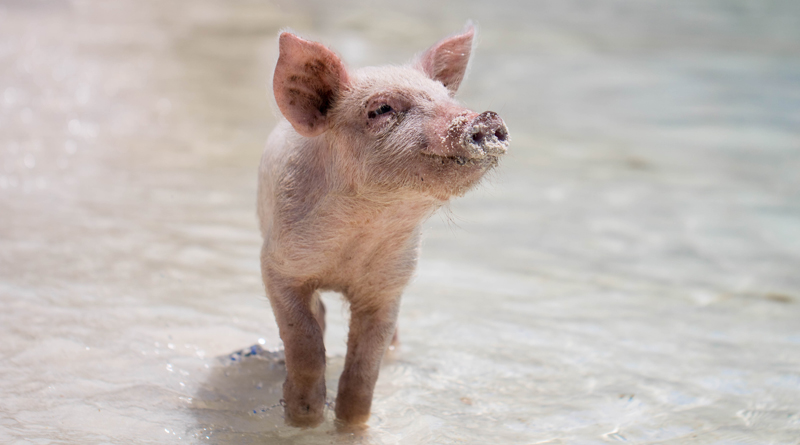Who You Calling An Idiom?

An idiom is a phrase or expression that typically presents a figurative, non-literal meaning attached to the phrase. When you see a group of words that actually don’t make any sense in the context if read as normal words, suspect it could be an idiom. Idioms occur frequently in all languages; in English alone, there are an estimated 2,500 idiomatic expressions.
I like idioms, and I’m fascinated at their origin. One of my favorite books is titled A Hog on Ice: & Other Curious Expressions by Charles E. Funk. He explains the meanings that we use in everyday speech without even thinking about it. His collections of curious words and expressions are a treasure trove of word origin. He has traced them back through the years — in some cases centuries — in an effort to determine their sources, to find out what the original allusions were, or, at the very least, to give us his expert opinion when facts cannot be traced.
Here’s an example: This past summer I was bitten by a dog. The wound wasn’t serious but almost immediately I thought of the expression, “The hair of the dog that bit you.” Customarily, Dr. Funk says, this applies to a drink taken as a pick-me-up on the morning after a spree. The curious name for the practice comes from a widely accepted medical doctrine that goes back at least to the sixteenth century and was probably the common folk belief that if one were bitten by a dog suffering from rabies, one’s chance of recovery was greatly improved if a hair from that dog could be secured and bound upon the wound.
While we’re writing about dogs, let’s look up “in the dog house.” Aside from the literal sense, this modern expression is used to mean that a person is undergoing punishment of some sort. It is usually used to denote the treatment, mental or physical, meted out to a man by his spouse for some misdemeanor. Probably the original allusion was to a “gay dog,” a man who, in his wife’s opinion, had been somewhat too gay and jovial, or perhaps had been roving too far from his own fireside. And, just as the punishment for a roving dog is to be confined to his kennel, so the two-legged gay dog deserved similar treatment.
Here’s another one: What’s the meaning of the phrase, “To buy a pig in a poke?” Other languages have similar expressions, all dealing with the folly of buying something that one has not seen. In England, from time immemorial, it has been a pig…in a bag…slung over the shoulder in a stout “poke,” the old-fashioned name for a bag smaller than a sack. The peasantry was apparently not above taking a runt to market and trying to sell it without opening the bag, because, as was undoubtedly the excuse, everyone knew how hard it would be to catch the piglet if it got loose. But the peasantry was also not above other tricks. Some investigators into bygone practices allege that, instead of a runt, it was a cat that was offered to the unwary customer. A canny purchaser, doubting the integrity of the dealer, however, might refuse to buy without an examination of the contents, thus giving rise to the related saying, “to let the cat out of the bag.”
Here’s a good one: “to be caught with one’s pants down.” The figurative meaning is, of course, to be taken completely by surprise; to be wholly unprepared. But the literal meaning…takes us back to the days when…frontiersmen were exposed to peril if their muskets were not actually at hand. Even at the risk of death, the wants of nature must be met, and in such circumstances a lurking Indian would indeed catch one in a state of embarrassing unpreparedness.
What does the expression “to go the whole hog” mean? There are at least two definitions. From the first, the meaning has been to accept without reservation; to support wholeheartedly; to carry through to completion; to stop at nothing; to go all the way. It has been suggested, Dr. Funk writes, that the expression had another origin, a monetary one, because just as we speak of a dollar bill as a “buck,” a shilling in England, or a ten-cent piece in the United States was at one time called a “hog.” Thus, a great spendthrift, one willing to spend an entire shilling or a full dime upon entertainment of a friend in a bar, was willing “to go the whole hog.”
Finally, since we’re talking about hogs, what does “as independent as a hog on ice mean” referring to the aforementioned book? Dr. Funk’s explanation is nearly eight pages long consisting of nearly the entire Forward of his work. Suffice it to say, it is someone who is cockily independent, supremely confident, beholden to no one that manifests a pig-like indolence.
Do you know someone like that? Well, don’t say it to their face or they may “fly off the handle.” Now go look that one up!
- A July 4th Mystery Or Strange Coincidence? - July 5, 2024
- What Is Flag Day All About? - June 7, 2024
- ‘Mayday!’ & May Day - May 10, 2024


